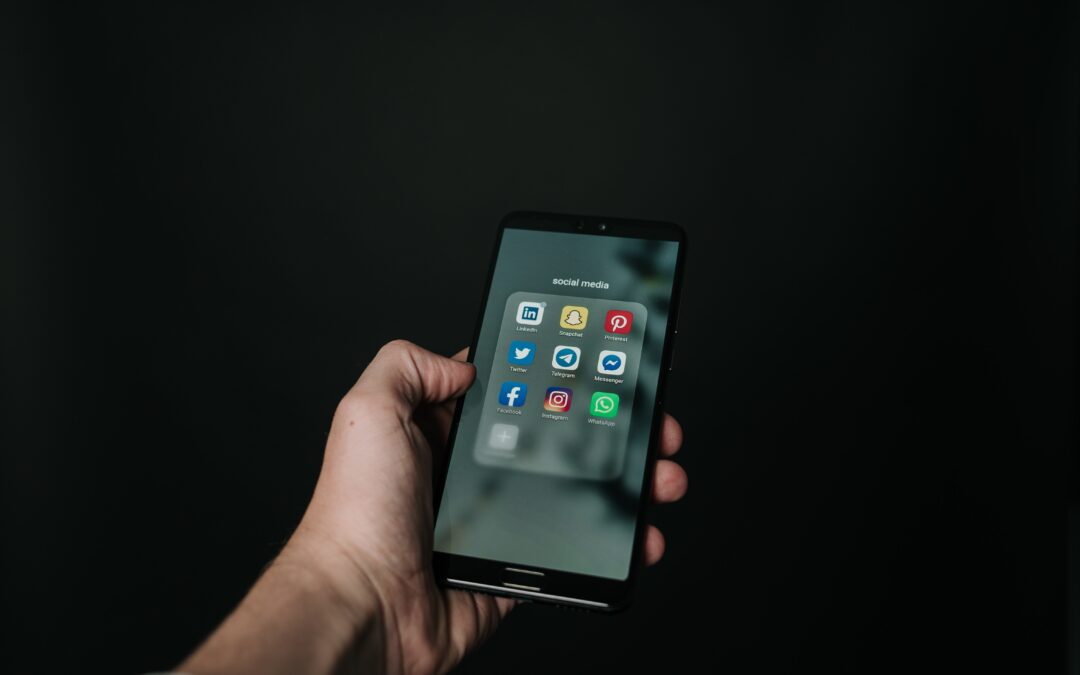Introduction
In today’s digital age, the music industry has undergone a significant transformation. Musicians now have direct access to their fans and can cultivate a loyal following with the power of social media.
Gone are the days when record labels held all the keys to success. In this blog post, we will explore the intricacies of music marketing through social media, backed by insights from credible sources and examples from popular musicians who have harnessed these platforms to their advantage.
A. The Power of Social Media in the Music Industry
Social media has revolutionized the way musicians connect with their audience. It offers a direct channel to engage with fans, promote new releases, and build a personal brand. A recent study by Music Business Worldwide found that over 75% of music discovery now happens through social media platforms.
B. The Importance of Effective Music Marketing
In a crowded digital landscape, effective marketing is key to standing out. The music industry is highly competitive, and having talent alone is no longer enough. Successful musicians understand the importance of marketing their music effectively to reach a wider audience.
C. Purpose and Scope of the Blog Post
This blog post aims to provide a comprehensive guide for musicians looking to leverage social media for music marketing. We will cover everything from understanding your target audience to using data analytics to measure success.
II. Understanding Your Target Audience
A. Identifying Your Ideal Fanbase
To create an effective social media marketing strategy, you must first identify your ideal fanbase. Taylor Swift, for example, found massive success by catering to a broad demographic, from teenagers to adults, with her genre-spanning music.
B. Creating User Personas
Creating user personas helps you better understand your fans’ preferences and interests. Ed Sheeran’s team, for instance, analyzes data to create personas that inform their content strategy.
C. Analyzing Demographics and Psychographics
Understanding the demographics and psychographics of your audience is crucial. Billie Eilish, known for her Gen Z appeal, has built her brand by connecting with her young and socially conscious audience.
III. Choosing the Right Social Media Platforms
A. Overview of Popular Social Media Platforms for Musicians
Different platforms cater to various types of content. Instagram, with its visual focus, is favored by artists like Beyoncé, while Twitter is the go-to platform for artists like Kanye West to share thoughts and updates.
B. Platform Selection Based on Genre and Target Audience
The choice of platform should align with your music genre and target audience. Metallica, a legendary rock band, primarily engages with fans on Facebook and Instagram due to their broad demographic.
C. Creating a Presence on Multiple Platforms
Diversifying your presence across multiple platforms, like Ariana Grande does on Instagram, Twitter, and TikTok, increases your reach and engages different segments of your audience.
IV. Building a Strong Online Brand
A. Crafting a Unique Brand Identity
A strong brand identity sets you apart. Lady Gaga’s unique and ever-evolving personas have kept her audience engaged and intrigued.
B. Consistent Visual and Verbal Branding
Consistency in branding, as exemplified by Bruno Mars, ensures that your audience recognizes your content instantly.
C. Showcasing Authenticity and Personality
Being authentic and personable, as demonstrated by Chance the Rapper, fosters a deeper connection with fans.
Checkout: Music Licensing and Royalties for Independent Artist
V. Content Strategy and Creation
A. Types of Content That Resonate with Fans
Content should resonate with your audience. BTS, for example, regularly shares behind-the-scenes glimpses, creating a sense of intimacy with fans.
B. Creating Engaging Posts, Videos, and Stories
Engaging content, like Drake’s music videos and collaborations, generates buzz and encourages sharing.
C. Planning Content Calendars and Consistency
Consistency in posting, as seen in the case of Taylor Swift’s carefully planned content calendars, keeps fans engaged and eagerly anticipating new releases.
VI. Leveraging Live Streaming and Virtual Concerts
A. Hosting Live Q&A Sessions
Live Q&A sessions, like those hosted by Dua Lipa, allow for real-time interaction with fans, fostering a sense of community.
B. Organizing Virtual Concerts and Events
Virtual concerts, such as those by Travis Scott in collaboration with Fortnite, open up new revenue streams and reach global audiences.
C. Interacting with Fans in Real-Time
Interacting with fans during live streams, as Billie Eilish does, creates a personal connection and can lead to increased support and loyalty.
Checkout: Influencer Marketing Strategies in the Music Industry
VII. Collaborations and Influencer Marketing
A. Partnering with Other Musicians and Bands
Collaborations, like the one between Beyoncé and Jay-Z, can cross-pollinate fanbases and amplify reach.
B. Leveraging Influencers and Brand Ambassadors
Artists like Selena Gomez use influencers and brand ambassadors to promote their music and connect with new audiences.
C. Maximizing the Reach of Collaborative Efforts
Successful collaborations extend beyond music and include cross-promotion on social media, as seen with the Weeknd’s partnership with TikTok.
VIII. Building and Engaging with Your Fan Community
A. Encouraging Fan Participation
Encouraging fan-generated content, as seen in the #Swifties fanbase, strengthens community bonds. Engaging with fans directly through comment sections and direct messages, like Shawn Mendes does, fosters a sense of connection and loyalty.
C. Creating Exclusive Fan Clubs and Communities
Creating exclusive fan clubs, as Taylor Swift’s Swifties have, provides a space for superfans to connect and engage more deeply.
IX. Data Analytics and Measuring Success
A. Monitoring Social Media Metrics
Tracking metrics like engagement rates and follower growth helps you gauge your impact, similar to how Ariana Grande’s team uses data.
B. Tracking the Impact of Marketing Campaigns
Measuring the ROI of marketing campaigns, like Justin Bieber’s Purpose Tour campaign, allows for optimization and informed decision-making.
C. Making Data-Driven Decisions for Improvement
Using data to refine strategies and targeting, artists like Adele have made comebacks with record-breaking success.
X. Paid Advertising and Promotions
A. Utilizing Social Media Advertising
Paid advertising, such as Taylor Swift’s Spotify promotion, can help boost visibility and reach new fans.
B. Running Effective Ad Campaigns
Effective ad campaigns, like those run by Drake on YouTube and Instagram, can be a cost-effective way to promote music.
C. Budgeting and ROI Assessment
Understanding ad spending and measuring the ROI ensures efficient allocation of resources, as demonstrated by Taylor Swift’s team.
XI. Staying Updated and Adapting to Trends
A. Keeping Up with Social Media Trends
Staying informed about emerging trends, as Olivia Rodrigo did with TikTok challenges, keeps your content fresh and relevant.
B. Adapting Strategies to Platform Changes
Adapting to algorithm changes, as seen with Facebook’s evolving algorithms, ensures continued visibility.
C. Future-Proofing Your Music Marketing Efforts
By staying nimble and adaptable, musicians like Beyoncé have sustained long and successful careers in the ever-changing digital landscape.
XII. Conclusion
Successful music marketing through social media requires understanding your audience, building a strong brand, creating engaging content, leveraging live streaming, collaborations, and influencers, nurturing your fan community, analyzing data, utilizing paid advertising, and staying adaptable to trends.
The music industry will continue to evolve, and social media will play an even more significant role in the future. Artists who embrace change and innovate in their marketing efforts, like Kanye West’s unconventional album releases, will have a competitive edge.
As we conclude, it’s clear that social media has become a powerhouse for music marketing. While it may seem daunting, remember that even the biggest names in the industry started small and built their empires one post at a time. With the insights shared in this blog post and inspiration from successful artists, you have the tools to kickstart or enhance your music marketing journey on social media.
In an industry where success hinges on creativity, innovation, and connection with fans, social media offers an unparalleled opportunity for musicians to thrive. By understanding your audience, building a compelling brand, creating engaging content, and embracing the ever-changing digital landscape, you can elevate your music career and make your mark in the world of music.
So, start today, and let your music resonate with the world through the power of social media. Your journey to musical greatness begins with a single post.






